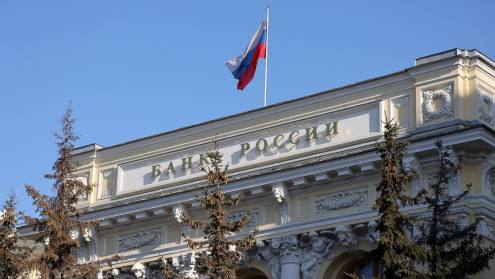Ukraine’s economy is putting in double-digit growth and companies are desperate for investment capital. As the banking sector is too small to satisfy the biggest companies’ insatiable appetite and Eurobonds are too expensive, corporations have turned to the domestic market to raise money with a growing tide of corporate bond issues.
The first round of big bond issues kicked off in 2002, when metallurgical company Metalen issued a Hrv50m ($10m) bond. Sales were soaring and the company was casting round for investment capital to keep up with demand from its main export clients – mostly China and the Philippines.
The number of corporate bond issues has risen rapidly this year. Companies placed a steady stream of bonds between 2001, when 16 bonds worth $129m were issued, rising to 38 bonds worth a collective $145m in 2003. But in the first three months of this year, more than $400m-worth of corporate bonds were issued. Kiev-based investment bank Dragon Capital estimates that by the year-end corporate issues will total more than $810m, 1.7% of GDP, putting Ukraine on a par with the other eastern bloc countries.
Access to liquidity
Banks are keen to lend but are dwarfed by their industrial clients. However, with the banking sector’s capital growing by 60% a year, bond issues are a convenient way of tapping into a growing pool of liquidity.
Much larger sums of longer-term capital can be raised from the international capital markets with Eurobonds and some of state-owned companies and the commercial bank PrivatBank have taken this route. But, for most, interest rates are still too high to make them attractive. Ukrsotsbank, one of Ukraine’s biggest banks, called off its plan to issue a Eurobond in May.
“We suspended our Eurobond plans because of market conditions and the rising rates but also because it is expensive,” says Ukrsotsbank CEO Boris Timonkin. “The effective rates are about 11% while deposits cost us about 8.25% in the local market and we are receiving about $100m a quarter from rising deposits.”
Big issues
Aval, the largest bank in Ukraine, was the first bank to issue a Hrv80m corporate bond last summer – at the time easily the biggest and most liquid – but has since been overshadowed by several huge bonds of about Hrv300m, issued by state-owned enterprises like the rail company and nuclear power generator. Private company bonds are smaller and popular with construction and food processing companies.
“Today, most corporate bonds are just another form of credit,” says Oleksandr Derkach, chairman of Aval, which is also a leading bond underwriter. “It is different from the West as bonds are not designed to appeal to the market but as an application to the banks for credits. There are no institutional investors, the only players are other banks.”
The state pension fund would qualify but the law prevents it from investing into anything other than sovereign treasury bills. Institutions like private pension funds are still missing from the Ukrainian economy and the insurance companies that do exist are closely connected to one of the leading industrial groups.
Still, the number of issues is accelerating as the leading companies have already done enough to establish a reputation on the limited domestic capital market: leading mobile phone operator Kyivstar has already issued two Hrv29.5m bonds.
“Companies are trying to build up credit histories as the whole economy is undercapitalised,” says Mr Derkach. “The lack of funds is the most vivid feature of the Ukrainian economy. There is interest in bank bonds but demand is limited.”
Short maturities
Maturities are still short, too, with the bulk of bonds coming due after only six months to a year. The handful of longer bonds have put options every six months allowing the company to pay them off early, effectively making them short-term instruments.
And yields are still high. Metalen’s bond has a yield to maturity of 18.65% although it has fallen to about 11% more recently. The trustworthy state-owned companies continue to be well received but private companies are hoping to cash in on their dynamism. Now the ball is rolling, it is just a question of time.
“Some of our customers have annual turnovers in the hundreds of millions of dollars but they may not have consolidated, transparent ownership,” says Mr Derkach. “It is impossible to jump upstairs in one go.”











